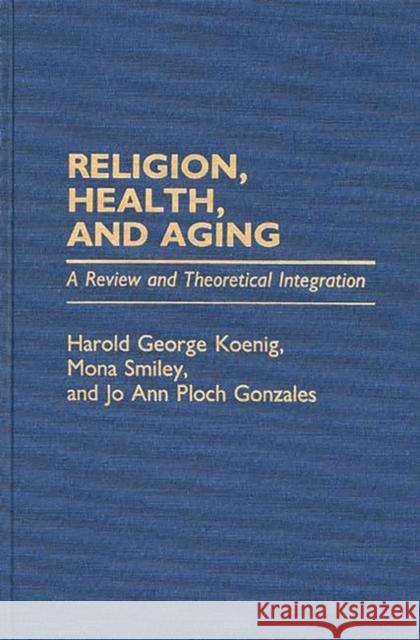Religion, Health, and Aging: A Review and Theoretical Integration » książka
Religion, Health, and Aging: A Review and Theoretical Integration
ISBN-13: 9780313262081 / Angielski / Twarda / 1988 / 240 str.
This book presents a comprehensive and scientific review of the research during the past fifty years on the relationship between religion and health in later life. It will help professionals gain awareness of the importance of religious and spiritual variables among older people. The widespread interest in religion among today's elderly suggests its value as a coping strategy and personal resource. Unlike any other in the field, this volume synthesizes both past research and new findings, including recent unpublished data, into a model of how religion might interact with other variables to help determine adaptation to stress in later life. "Religion, Health, and Aging" provides substantial contributions to both the applied and academic aspects of religion and aging. With over 500 references this work brings together research findings from a wide variety of disciplines and organizes them in an easily retrievable format.
The introduction provides a theoretical framework and model of interactions. Subsequent chapters address the relationship between religious beliefs and attitudes and both mental and physical health. Next investigated are the impacts on health of private religious activity, community religious involvement, and personal religious experience. A model that demonstrates how religion might interact with stress and illness in later life is presented. Actual cases exemplify the role of religion in the lives of older people facing life-threatening illness. Perspectives from the disciplines of social gerontology, geriatric medicine, and the clergy are analyzed. A review is presented of the implications of research findings for professionals working with older persons. A detailed bibliography, list of publications, and organizations to contact for further information, provide access to further resources. The appendix contains a review of the development and validation of the Springfield Religiosity Schedule, an instrument measuring religious activities, attitudes, and beliefs of the elderly. "Religion, Health, and Aging" will serve as a centralized resource of significant value to gerontologists, physicians in psychiatry and medicine, nurses, educators, therapists, clinical psychologists, social workers, the clergy, and others whose professional and personal lives touch older people.











